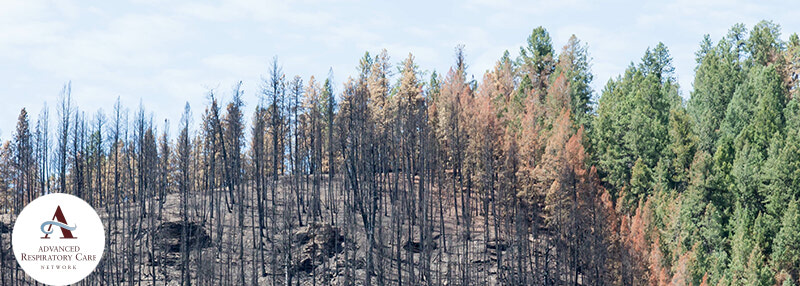As wildfires become a more frequent occurrence, the smoke they produce poses a significant threat to respiratory health. The dense particulate matter in wildfire smoke can penetrate deep into the lungs, causing a range of health issues. Here are some comprehensive strategies to safeguard your lungs against the haze:
1. Monitor Air Quality
Stay vigilant by keeping an eye on the Air Quality Health Index (AQHI) available through local environmental agencies or online platforms. This index provides crucial information on the level of air pollution and offers advice on how to minimize health risks. When AQHI levels are high, it’s wise to limit outdoor exposure, especially for children, the elderly, and those with pre-existing health conditions.
2. Stay Indoors
During periods of heavy smoke, your home should serve as a safe haven. Ensure that your indoor air remains clean by using air conditioning systems with proper filtration settings. Consider investing in portable air cleaners with HEPA filters for additional protection, particularly in bedrooms and other frequently used areas.
3. Use Masks Appropriately
If venturing outside is unavoidable, arm yourself with a properly fitted mask. Masks rated N95 or P100 are designed to filter out fine particles found in smoke. Remember to check the seal around your face to ensure maximum protection and replace the mask as recommended by the manufacturer.
4. Manage Respiratory Conditions
For individuals with chronic respiratory diseases like asthma or COPD, maintaining control over your condition is paramount. Adhere to your prescribed treatment plan, keep rescue inhalers within reach, and monitor symptoms closely. Adjust your medication as needed in consultation with your healthcare provider.
5. Seek Professional Advice
Tailored advice is key when dealing with the complexities of lung health and wildfire smoke. Don’t hesitate to reach out to healthcare providers for guidance that’s specific to your health needs and circumstances. They can help you understand how to effectively use air purifiers, select the right masks, and manage any respiratory conditions during times of poor air quality.
We hope that these tips help you protect your lung health from wildfire smoke! At Advanced Respiratory Care Network, we’re committed to helping patients improve their lung health. We offer various respiratory diagnostic services, including allergy testing and pulmonary function testing. Learn more about how ARC Network can help you breathe better today!

